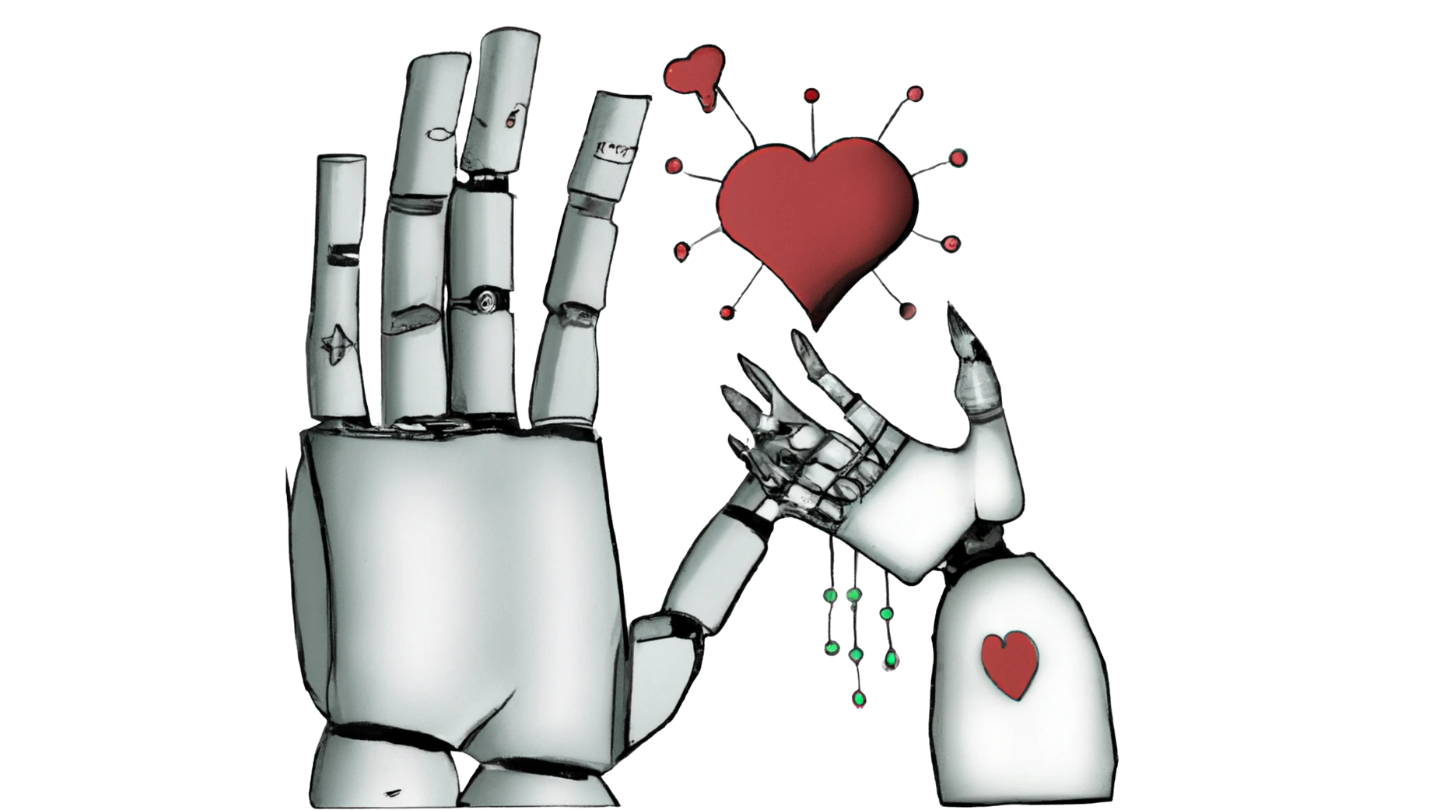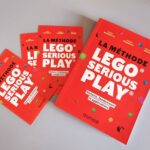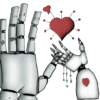
Reinventing Knowledge Work
La ricerca di un’identità professionale ai confini tra l’umanità e la tecnologia di frontiera
[ITA – EN BELOW]
Ora che le organizzazioni stanno cercando di evolvere verso i nuovi paradigmi di governance distribuita e partecipativa che attivano ambienti di apprendimento continuo (Laloux le descrive nel suo libro “Reinventing Organizations”), quali sfide l’intelligenza artificiale mette davanti a noi, lavoratori della conoscenza e della creatività, che abbiamo il compito di facilitare questa evoluzione? E da quale prospettiva dobbiamo osservare queste sfide?
Io, ad esempio, mi metto dal punto di vista sia della coach/formatrice che facilita individui e organizzazioni a reinventarsi, che della coachee/studentessa che vuole ridisegnare continuamente la propria professione con l’entusiasmo da early adopter che mi contraddistingue da sempre.
La mia personale prospettiva parte quindi da una doppia visione, ma converge verso la stessa considerazione.
Prima di sistematizzare le mie riflessioni, vorrei condividere un disclaimer importante: questo post è il frutto di un onesto scambio “intellettuale” tra me e Chat GPT, dove lei ha messo sul tavolo la sua capacità di fare sintesi, confrontare e restituire output in forma di sintassi e io, oltre all’elaborazione semantico/cognitiva, ho messo sensibilità e capacità intellettiva nell’input, intuizione e quel tocco di creatività e flessibilità mentale che mi hanno aiutato a discernere tra i vari tentativi di omologazione degli output.
Già in questo disclaimer si inizia a evincere il core del mio ragionamento.
L’AI che potremmo utilizzare noi lavoratori della conoscenza è in grado di elaborare grandi quantità di dati in poco tempo per fornire risposte rapide e precise, ma non ha una comprensione profonda e personale della realtà e interagisce secondo una logica input-output.
La prima sfida perciò sta nel valore nell’input, che appartiene all’essere umano, unico in grado di pensare in modo astratto, di creare nuove idee e concetti, di imparare dalla profondità e complessità dalle esperienze e di adattarsi alle situazioni in modo flessibile, gestendo emozioni e sentimenti. Quindi, più potente è l’input più efficace è l’output che, se ben contestualizzato, è in grado di generare ulteriori input di valore a costruire un circolo virtuoso crescente.
Viene da sé che vale anche il contrario. Più l’input è scialbo e superficiale, minore sarà l’efficacia e la pertinenza dell’output.
Tuttavia questa è una lettura un po’ superficiale e limitata. In realtà, durante una conversazione o interazione, sia la persona che l’AI sono coinvolti nel processo di input-output, dove l’intelligenza artificiale può anche fornire informazioni o suggerimenti, oltre a rispondere a domande o richieste.
Ma anche qui interviene una nuova sfida: la capacità specifica della persona di discernere, astrarre, creare e gestire relazioni personali, individuare connessioni semantiche, sperimentare l’emotività e prendere decisioni.
Il grosso vantaggio che intravedo nella relazione tra noi knowledge worker e l’intelligenza artificiale è una dichiarata, trasparente e consapevole collaborazione, dove la consapevolezza è però specifica dell’attività umana.
Mentre l’intelligenza artificiale ci offre l‘automatizzazione delle attività ripetitive e di routine, la velocizzazione dei processi e la semplificazione dell’impegno legato ad alcune attività di progettazione, noi knowledge worker possiamo affrontare una nuova sfida: dedicare maggior tempo a quelle attività “più umane” che apportano ulteriore valore aggiunto alla nostra professione. Possiamo riscoprire così il piacere della ragione, della conoscenza critica e della cultura, dell’abilità di pensare in modo creativo, di risolvere problemi complessi e di interagire con gli altri in modo empatico.
Quindi l’AI ci aiuta a svolgere il nostro lavoro in modo più efficiente, ma soprattutto ci libera per consentirci di esplorare il nostro potenziale umano e di metterlo al servizio della società.
Tuttavia se da un lato l’AI ha il potenziale di restituirci spazio e tempo per pensare liberamente, in questo spazio di libero pensiero dobbiamo necessariamente includere l’alert di una sfida ardua, la forte probabilità che si creino nuove disuguaglianze con impatti importanti sulla formazione, l’occupazione e il reddito oltre a disfunzioni sociali nell’accesso ai servizi primari, primo tra tutti la salute pubblica. Su questo tema si dovrebbe, però, aprire una riflessione a parte.
Rimanendo nel nostro campo, come coach e facilitatori di apprendimento, abbiamo la responsabilità di comprendere la portata dell’evoluzione tecnologica, smettere di fare battaglie luddiste, concentrarci su come migliorare l’esperienza di apprendimento e sviluppare abilità specifiche per noi e per i nostri utenti.
L’esperienza umana è e rimarrà (molto probabilmente) il fulcro della relazione professionale perché preserva la capacità di pensare in modo critico e creativo, libera emozioni, attiva motivazione e crea fiducia nel supporto al cambiamento.
Le mie braccia, quindi, sono aperte più che mai ad accogliere questa evoluzione di identità professionale per reinventarci tutti con impegno e serietà in un crescente circolo etico e virtuoso.
In search of a professional identity at the boundaries between humanity and frontier technology
[EN]
Now that organizations are seeking to evolve towards new paradigms of distributed and participatory governance that activate continuous learning environments (as described by Laloux in his book “Reinventing Organizations”), what challenges does artificial intelligence present to us as knowledge and creativity workers who have the task of facilitating this evolution? And from what perspective should we view these challenges?
For example, I take the perspective of both a coach/trainer who facilitates individuals and organizations to reinvent themselves, and a coachee/student who wants to continually redesign their profession with the enthusiasm of an early adopter that has always characterized me.
My personal perspective therefore starts from a dual vision, but converges towards the same consideration.
Before I systematize my reflections, I would like to share an important disclaimer: this post is the result of an honest “intellectual” exchange between me and Chat GPT, where she has brought to the table her ability to synthesize, compare and return outputs in the form of syntax, and I, in addition to the semantic/cognitive processing, have contributed sensitivity and intellectual capacity in the input, intuition and that touch of creativity and mental flexibility that have helped me to discern among the various attempts at homogenizing the outputs.
Already in this disclaimer, the core of my reasoning begins to emerge.
The AI that we knowledge workers could use is capable of processing large amounts of data quickly to provide quick and precise answers, but it does not have a deep and personal understanding of reality and interacts according to an input-output logic.
The first challenge, therefore, lies in the value of the input, which belongs to the human being, the only one capable of abstract thinking, creating new ideas and concepts, learning from the depth and complexity of experiences, and adapting to situations in a flexible manner, managing emotions and feelings. Therefore, the more powerful the input, the more effective the output, which, if well contextualized, is able to generate further valuable inputs to build a growing virtuous circle. It goes without saying that the opposite is also true. The more bland and superficial the input, the less effective and relevant the output will be.
However, this is a somewhat superficial and limited interpretation. In fact, during a conversation or interaction, both the person and the AI are involved in the input-output process, where artificial intelligence can also provide information or suggestions, in addition to responding to questions or requests.
But here too a new challenge arises: the specific ability of the person to discern, abstract, create and manage personal relationships, identify semantic connections, experience emotions and make decisions.
The great advantage that I see in the relationship between us knowledge workers and artificial intelligence is a declared, transparent and aware collaboration, where awareness is specific to human activity. While artificial intelligence offers us automation of repetitive and routine activities, faster processes, and simplification of the effort involved in certain design activities, we knowledge workers can face a new challenge: devoting more time to those “more human” activities that bring additional added value to our profession. We can rediscover the pleasure of reasoning, critical knowledge and culture, the ability to think creatively, solve complex problems and interact with others empathetically.
So AI helps us do our job more efficiently, but above all it frees us to explore our human potential and put it at the service of society. However, while AI has the potential to give us space and time to think freely, in this space of free thought we must necessarily include the alert of a difficult challenge, the strong probability that new inequalities will be created with important impacts on education, employment and income as well as social dysfunctions in access to primary services, first and foremost public health. On this issue, however, a separate reflection should be opened.
Staying in our field, as coaches and learning facilitators, we have the responsibility to understand the scope of technological evolution, stop fighting Luddite battles, focus on improving the learning experience, and develop specific skills for ourselves and our users. The human experience is and will remain (most likely) the focus of the professional relationship because it preserves the ability to think critically and creatively, frees emotions, activates motivation, and creates trust in supporting change.
Therefore, my arms are more open than ever to welcoming this evolution of professional identity to reinvent ourselves with commitment and seriousness in a growing ethical and virtuous circle.






